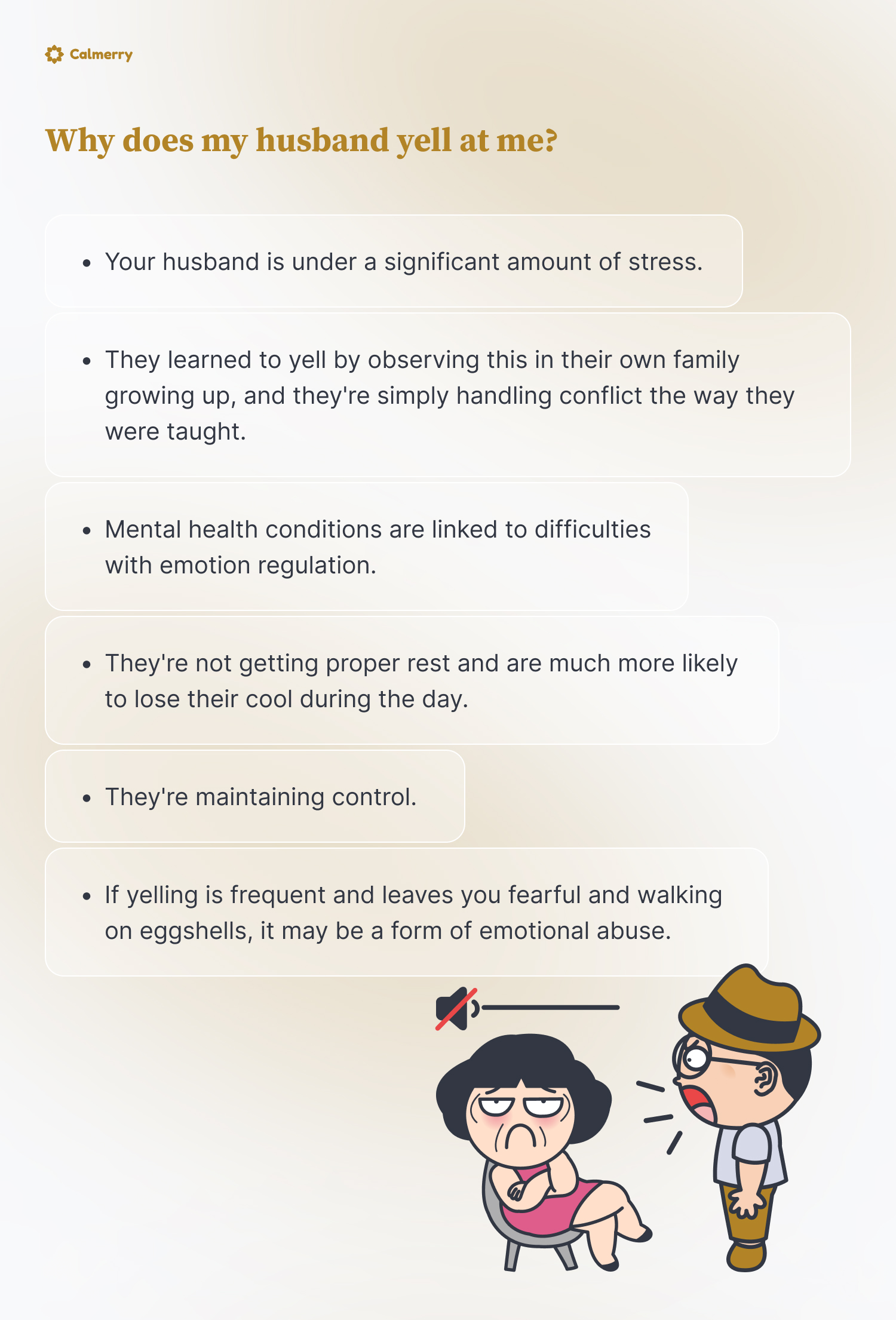Okay, so, it’s been a thing lately. My husband, bless his heart, has this… habit… of raising his voice when he gets frustrated. It’s not all the time, but when it happens, it really gets to me. I’ve been trying different things to deal with it, and I figured I’d jot it all down, mostly for myself, but hey, maybe it’ll help someone else too.

Step 1: Not Reacting in the Moment
First thing I tried, and honestly it was the hardest, was to just not react. Like, at all. When he starts yelling, my gut instinct is to either yell back or clam up and get all teary-eyed. Neither of those helps. So, I started practicing just… breathing. Sounds dumb, I know, but it really does make a difference. I just focus on taking slow, deep breaths and try to let the words wash over me without letting them stick.
Step 2: Finding a Calm Time to Talk
Once things have cooled down – and this is key, it has to be after the heat of the moment – I try to talk to him about it. I’ve learned that bringing it up when he’s already stressed is like throwing gasoline on a fire. So, I wait. Sometimes it’s later that day, sometimes it’s a day or two later. I just wait until we’re both calm and can actually listen to each other.
Step 3: “I” Statements – It is all my fault!
This is where I try to explain how it makes me feel. Someone told me to use “I” statements, and honestly, it sounded super cheesy at first, but it actually works. Instead of saying, “You always yell at me!” (which just makes him defensive), I try something like, “I feel really hurt and scared when your voice gets that loud.” or “I feel sad, and I can not bear any words from your mouth”. It’s about making it about my feelings, not about his actions, if that makes sense.
Step 4: Setting Boundaries (Gently)
This is the tricky part, and I’m still working on it. It’s about setting boundaries, but in a way that doesn’t feel like I’m attacking him. I started saying things like, “I understand you’re frustrated, but I can’t have a productive conversation when you’re yelling. Can we take a break and come back to this when we’re both calmer?” It’s basically saying, “I’m not going to engage with you when you’re like this.”
Step 5: Trying to Understand His Side
Okay, this one is tough because when I’m upset, the last thing I want to do is think about his feelings. But, I’ve been trying to understand why he yells. Is he stressed about work? Is he feeling overwhelmed? Is it something I’m doing (or not doing)? Sometimes, just asking him, “Hey, what’s going on? You seem really stressed,” can open up a whole different conversation, a much calmer one. Then he tell me the truth which he does not angry at all.

Step 6: Practice Self-Care and keep myself clam.
- take a long bubble bath.
- watch my favorite show.
- just zone out with some music.
My last step is that I will take good care of myself no matter what happened!
It’s a work in progress, honestly. Some days are better than others. But I’m trying, and that’s what matters, right? It’s about finding ways to communicate better and to protect my own emotional well-being in the process.










